Plenary Speakers
Professor Sir Colin Brian BLAKEMORE
Professor of Neuroscience & Philosophy
School of Advanced Study
University of London
& Emeritus Professor of Neuroscience
University of Oxford
Title: I see what you mean. The link between perception and language
How language evolved remains a crucial question for the understanding of human cognition. I shall examine critically the still-dominant view that human beings have an innate (genetically specified) mental faculty for language. The overt expression of linguistic concepts, through gesture or speech, depends on the capacity to plan and coordinate movement of the hands, limbs, larynx and tongue. Fine motor control evolved in the primate line and, to that extent, the appearance of full linguistic behaviour must have depended on conventional genetic variation and selection. However, the fact that linguistic signals can be expressed through a variety of motor mechanisms implies that language rests on neural machinery that represents the content and structure of language, independent of the form of expression. I shall argue that the capacity to learn language emerged as an extension of the evolution of sensory analysis, especially visual, in the cerebral cortex. The mosaic of visual processing areas beyond the primary visual cortex seems to identify behaviourally significant objects and events in the world, and to encode them in a generalised, symbolic form. The machinery for representing such events and their spatial and temporal relationships might provide the input to neural systems for learning linguistic forms of representation.
About the speaker
 Sir Colin Blakemore is Professor of Neuroscience & Philosophy, and Director of the Centre for the Study of the Senses, in the School of Advanced Study, University of London. He has recently been appointed as a Senior Fellow of the Institute for Advanced Study, City University of Hong Kong. He worked in the medical school at Oxford for 33 years and from 2003-7 was Chief Executive of the UK Medical Research Council. His research has focused on vision, development of the brain, and neurodegenerative disease. He was one of the first to emphasize the importance of plasticity in brain function. Sir Colin now leads a major project aimed at integrating philosophical and scientific approaches to the study of perception. Sir Colin has been President of the British Science Association, the British Neuroscience Association, the Physiological Society and the Society of Biology. His many honours include the Ralph Gerard Prize, the highest award of the Society for Neuroscience, the Faraday Prize and the Ferrier Prize from the Royal Society, and, in 2016, the Elise and Walter A Haas International Award from the University of California Berkeley. He was knighted in 2014 for "services to scientific research, policy and outreach".
Sir Colin Blakemore is Professor of Neuroscience & Philosophy, and Director of the Centre for the Study of the Senses, in the School of Advanced Study, University of London. He has recently been appointed as a Senior Fellow of the Institute for Advanced Study, City University of Hong Kong. He worked in the medical school at Oxford for 33 years and from 2003-7 was Chief Executive of the UK Medical Research Council. His research has focused on vision, development of the brain, and neurodegenerative disease. He was one of the first to emphasize the importance of plasticity in brain function. Sir Colin now leads a major project aimed at integrating philosophical and scientific approaches to the study of perception. Sir Colin has been President of the British Science Association, the British Neuroscience Association, the Physiological Society and the Society of Biology. His many honours include the Ralph Gerard Prize, the highest award of the Society for Neuroscience, the Faraday Prize and the Ferrier Prize from the Royal Society, and, in 2016, the Elise and Walter A Haas International Award from the University of California Berkeley. He was knighted in 2014 for "services to scientific research, policy and outreach".
Professor Kara FEDERMEIER
Professor of Psychology
University of Illinois at Urbana Champaign (UIUC)
Title: Finding meaning in time: Aging and the dynamics of comprehension
A lynchpin of human cognition is the ability to rapidly and effectively link incoming sensory information to knowledge stored in long-term memory. Work in my laboratory, focusing on the cognitive and neural mechanisms that make this possible, has revealed the critical import of time and context for meaning processing. In particular, we have shown that the young adult brain addresses the temporal constraints inherent in language comprehension by actively using context information to predict features of likely upcoming words, an ability that makes use of left hemisphere mechanisms shared with language production. In this talk, I will discuss what we have learned about the mechanisms - and limitations - of prediction in the context of comprehension. I will also show how prediction, and comprehension more generally, changes over the course of normal aging. Emerging data show that aging is associated with changes how information accrues over time, how context is used to shape word processing, and how the brain responds to unexpected language events. In turn, these age-related changes have consequences not only for how comprehension unfolds in the moment, but also for what people later remember about what they have experienced and understood. Collectively, these findings reveal the complex relations among sensory processing, attention, memory, and control systems that allow people to rapidly and fluidly understand one another across the lifespan.
About the speaker
 Kara Federmeier received her Ph.D. in Cognitive Science from the University of California, San Diego in 1999. She is currently a Professor in the Department of Psychology and the Neuroscience Program at the University of Illinois. She is also a full-time faculty member at the Beckman Institute for Advanced Science and Technology, where she is co-chair of the Intelligent Systems research theme and leader of the Illinois Language and Literacy Initiative. Her research examines meaning comprehension and memory using human electrophysiological techniques, in combination with behavioral, eyetracking, and other functional imaging and psychophysiological methods. In particular, work in her laboratory, funded by the National Institute on Aging, the Institute of Education Sciences, and the James S. McDonnell Foundation, has focused on how multiple neural and cognitive mechanisms are used by younger and older adults during language processing and how these are affected by individual differences in biology, cognitive processing styles and abilities, and language experience.
Kara Federmeier received her Ph.D. in Cognitive Science from the University of California, San Diego in 1999. She is currently a Professor in the Department of Psychology and the Neuroscience Program at the University of Illinois. She is also a full-time faculty member at the Beckman Institute for Advanced Science and Technology, where she is co-chair of the Intelligent Systems research theme and leader of the Illinois Language and Literacy Initiative. Her research examines meaning comprehension and memory using human electrophysiological techniques, in combination with behavioral, eyetracking, and other functional imaging and psychophysiological methods. In particular, work in her laboratory, funded by the National Institute on Aging, the Institute of Education Sciences, and the James S. McDonnell Foundation, has focused on how multiple neural and cognitive mechanisms are used by younger and older adults during language processing and how these are affected by individual differences in biology, cognitive processing styles and abilities, and language experience.
Professor DONG Yanping
Guangdong University of Foreign Studies
Professor HUANG Guowen
Office of International Relations
South China Agricultural University, Guangzhou
Title: The Intensive Bilingual Experience of Interpreting and its Neurocognitive Consequences
Interpreting experience, as an intensive bilingual experience, may provide a clue to the hot-debated issue of the cognitive consequences of bilingual experience, and the more general issue of (language) learning and (brain) plasticity. Taking students of interpreting training as complex dynamic systems, we conducted a few behavioral and ERP studies to explore the neurocognitive consequences of interpreting training. Study One conducted 19 tests that measured L2 proficiency, WM, cognitive control, anxiety and interpreting performance, at two stages of interpreting training. The results illustrated how the complex dynamic systems of students of interpreting got gradually organized during the initial process of interpreting training. Study Two followed for one semester three comparable groups of university students that received general L2 training, written translation training and interpreting training. The results indicate that the more intensive training in interpreting brought about nonlinguistic cognitive control advantages in switching and updating, suggesting that the intensity of a linguistic experience may be a key factor in the issue of “language learning and brain plasticity”. Study Three conducted two ERP experiments using the Flanker task. Both experiments produced results that can be integrated into a coherent whole along the time course of processing, indicating that interpreting experience may enhance early attentional processing, conflict monitoring and interference suppression, as indexed respectively by the N1, N2 and P3 ERP components in the Flanker task. The results suggest that the sensitivity of a research tool may be another key factor in the issue of “language learning and brain plasticity”, and that the term of “the supervisory attentional system” is probably a good replacement of the concept of “cognitive control” that is popular in the studies of bilingual advantages. All in all, these findings suggest that interpreting experience does enhance the supervisory attentional system, and that the different data patterns in different studies employing different methods may have revealed different but complementary features of how interpreting experience (and bilingual experience) influences the supervisory attentional system. Possible links between language experience and the neurocognitive consequences will be discussed.
About the speakers
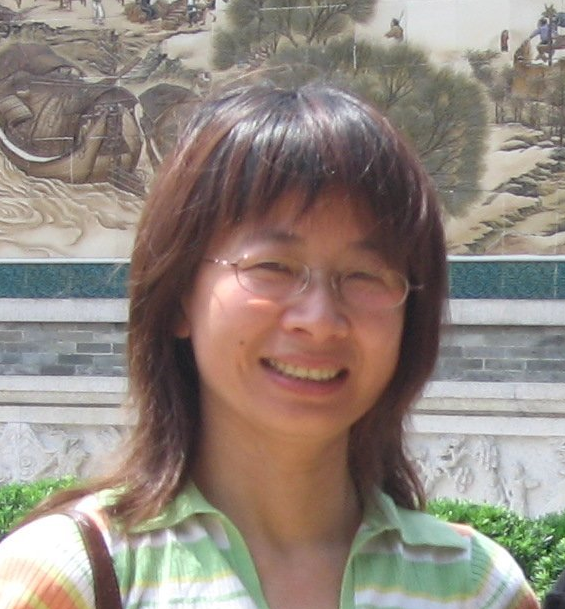 Prof. DONG Yanping received her PhD degree in Psycholinguistics from Guangdong University of Foreign Studies (GDUFS), and is now director of the Bilingual Cognition and Development Lab in GDUFS. She founded the Chinese Association of Psycholinguiscs in 2010 and serves as its chair. She has served from 2012 on the editorial board of Bilingualism: Language and Cognition (Cambridge University Press), and from 2013 on the advisory board of the book series of Bilingual Processing and Acquisition (John Benjiamins), apart from serving a number of other local and international journals. Her major interests are in two areas of psycholinguistics: 1) bilingual processing and acquisition, e.g., bilingual mental lexicon, language transfer, language and cognitive control. 2) psycholinguistic study of interpreting (with related topics in language teaching and learning). She believes that interpreting, the most demanding task in foreign language learning, is a typical task of bilingual processing and may provide a way to push traditional topics of bilingualism to new frontiers.
Prof. DONG Yanping received her PhD degree in Psycholinguistics from Guangdong University of Foreign Studies (GDUFS), and is now director of the Bilingual Cognition and Development Lab in GDUFS. She founded the Chinese Association of Psycholinguiscs in 2010 and serves as its chair. She has served from 2012 on the editorial board of Bilingualism: Language and Cognition (Cambridge University Press), and from 2013 on the advisory board of the book series of Bilingual Processing and Acquisition (John Benjiamins), apart from serving a number of other local and international journals. Her major interests are in two areas of psycholinguistics: 1) bilingual processing and acquisition, e.g., bilingual mental lexicon, language transfer, language and cognitive control. 2) psycholinguistic study of interpreting (with related topics in language teaching and learning). She believes that interpreting, the most demanding task in foreign language learning, is a typical task of bilingual processing and may provide a way to push traditional topics of bilingualism to new frontiers.
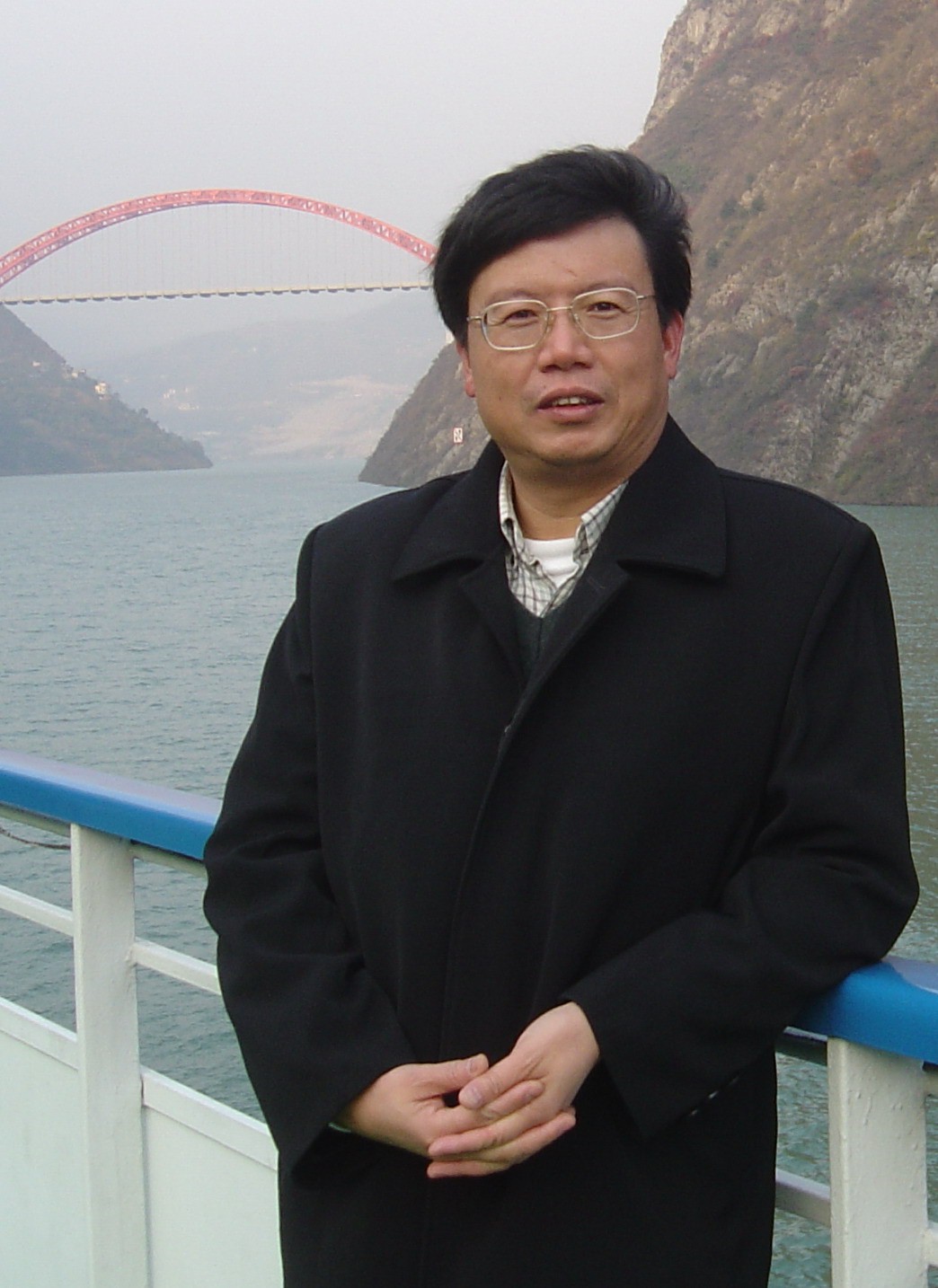 Prof. HUANG Guowen is a Chair Professor of the Changjiang Programme selected by the Ministry of Education of P.R. China. He was a professor of Functional Linguistics during 1996-2016 at Sun Yat-sen University, P.R. China. He is now a professor of Functional Linguistics and Ecolinguistics and is also Dean of the College of Foreign Studies as well as Director of Centre for Ecolinguistics at South China Agricultural University, P.R. China (Guangzhou). He was educated in Britain and received PhD degrees from two British universities (1992, Applied Linguistics, Edinburgh; 1996, Functional Linguistics, Cardiff). He was a Fulbright Scholar at Stanford University during 2004-2005. During 2011-2014 he was Chair of the Executive Committee of the International Systemic Functional Linguistics Association. He is Editor-in-chief of Zhongguo Waiyu (Foreign Languages in China) (Beijing), and is Co-editor-in-chief of Functional Linguistics (Springer) and Journal of World Languages (Routledge), apart from serving as adviser or member of editorial boards for a number of international journals. His main research interests include systemic functional linguistics, ecolinguistics, discourse analysis and translation studies.
Prof. HUANG Guowen is a Chair Professor of the Changjiang Programme selected by the Ministry of Education of P.R. China. He was a professor of Functional Linguistics during 1996-2016 at Sun Yat-sen University, P.R. China. He is now a professor of Functional Linguistics and Ecolinguistics and is also Dean of the College of Foreign Studies as well as Director of Centre for Ecolinguistics at South China Agricultural University, P.R. China (Guangzhou). He was educated in Britain and received PhD degrees from two British universities (1992, Applied Linguistics, Edinburgh; 1996, Functional Linguistics, Cardiff). He was a Fulbright Scholar at Stanford University during 2004-2005. During 2011-2014 he was Chair of the Executive Committee of the International Systemic Functional Linguistics Association. He is Editor-in-chief of Zhongguo Waiyu (Foreign Languages in China) (Beijing), and is Co-editor-in-chief of Functional Linguistics (Springer) and Journal of World Languages (Routledge), apart from serving as adviser or member of editorial boards for a number of international journals. His main research interests include systemic functional linguistics, ecolinguistics, discourse analysis and translation studies.
Prof LIU Meichun
Head, Department of Linguistics and Translation
City University of Hong Kong
Title: The Chinese Mind: what can Chinese tell us about grammar?
Chinese grammar is underspecified in a number of functional domains that are found obligatory in other languages. What is the Chinese grammar sensitive to and what is exactly "coded" in the grammatical system? These two questions have not been answered satisfactorily. This study aims to show that an insightful presentation of the Chinese grammar should depart from the English-biased framework and look into the fundamental mapping principles of FORM (surface coding) and FUNCTION (grammatical meaning) as they are realized in daily discourse of Chinese. Some unique characters of Chinese that have been puzzling to linguists include: lack of morphological marking of lexical categories, frequent use of bare nouns, frequent omission of subject and object, non-obligatory coding of tense, obligatory presence of a degree marker in adjectival predication, unmarked serial verb construction, marked sequencing constraints (such as verb copying), the diverse use of de in NPs and VPs, the alternating functions of negative markers (mei vs. bu), and a number of controversial 'aspectual' markers (le, zhe, guo, zai). The study will demonstrate how a function-based (Givón 1993, Frajzyngier with Shay 2016), construction-oriented (Goldberg 1995, 2005, 2010) approach will offer a more sensitive account of the morpho-syntactic structures of Chinese. After all, "metaphorically and literally, grammar - as musical form – must make sense" (Givón 1993).
About the speaker
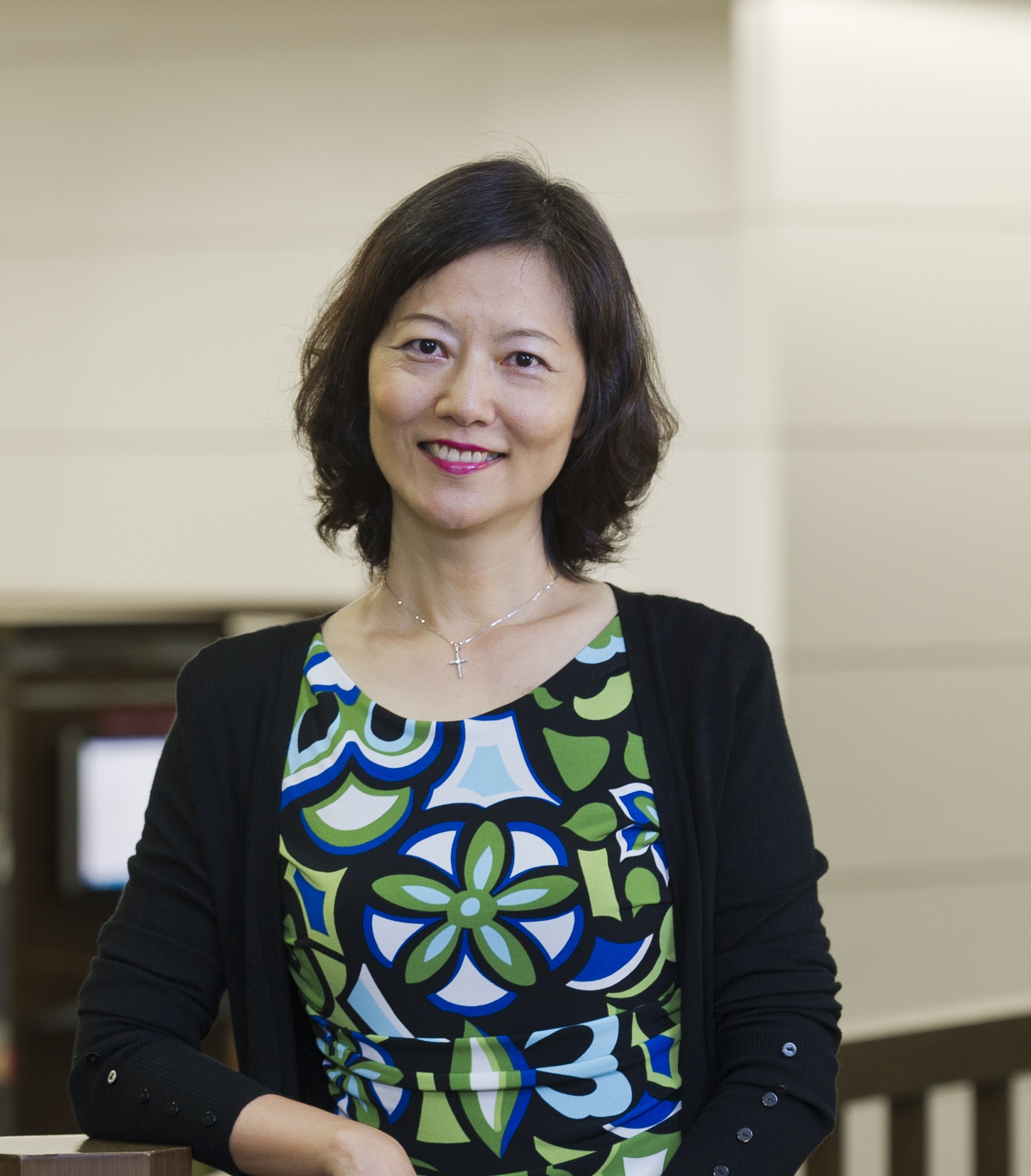 Prof. Meichun Liu (劉美君) is currently Head of the Department of Linguistics and Translation at City University of Hong Kong. She has taught and served as the Chair at the Department of Foreign Languages and literatures at National Chiao Tung University, Taiwan. She was also a Visiting Scholar at Stanford University and University of Colorado. Her areas of expertise are functional syntax, lexical semantics, corpus linguistics and cognitive linguistics. As the director of the Knowledge-based Corpus Study Center, she received consecutive research grants for 20 years from Taiwan MOST for her pioneering work on Mandarin verbal semantics.
Prof. Meichun Liu (劉美君) is currently Head of the Department of Linguistics and Translation at City University of Hong Kong. She has taught and served as the Chair at the Department of Foreign Languages and literatures at National Chiao Tung University, Taiwan. She was also a Visiting Scholar at Stanford University and University of Colorado. Her areas of expertise are functional syntax, lexical semantics, corpus linguistics and cognitive linguistics. As the director of the Knowledge-based Corpus Study Center, she received consecutive research grants for 20 years from Taiwan MOST for her pioneering work on Mandarin verbal semantics.
Prof. Liu received her PhD in Linguistics in 1993 from University of Colorado at Boulder with a Certificate in Cognitive Science, and did her post-doctoral research in the Institute of Information Science at Academia Sinica. She has held several administrative posts including NCTU Library Dean, the Director of International Exchange, and Coordinator of the Certificate Program on Teaching Chinese as a Foreign Language. She offered academic services as Taiwan Higher Education Assessment Committee member, English Education Consultant of Hsinchu City, Excom Member of International Association of Chinese Linguistics (IACL), LST Board Member, Section Editor for International Journal of Computational Linguistics & Chinese Language Processing.
Dedicated to innovative teaching and research, Professor Liu has won three NCTU Excellent Teaching Awards, Distinguished Academic Book and Journal Paper Awards, Pursuit of Excellency Research Grant Award. She has directed over 50+ graduate students and 5 of them won the LST thesis awards. She offered 9 OCW and 1 MOOC classes to promote public learning. Her class on the Communicative Functions of English is ranked #1 in popularity. She has published 3 books, 13 book chapters and over 25 international journal papers. Two of her books Making Sense of English Grammar and Making sense of English Writing are among the best sellers on language education in Taiwan.
Professor WANG Shiyuan
Chair Professor of Language and Cognitive Sciences
Department of Chinese and Bilingual Studies
Hong Kong Polytechnic University
& Emeritus Professor at UC Berkeley
Title: Language in Microhistory
Since language emerged in our species over 100,000 years ago, it has been constantly evolving, in our brains and in our societies. To understand the various processes of evolution, it is useful to divide them roughly into 3 time scales: macrohistory, concerned with its emergence to the present, mesohistory, starting with reconstructable changes which date back perhaps 10,000 years, and microhistory, which studies language in the individual, from hearing speech in the womb to the last words before death.
In addition to linguists, macrohistory has attracted attention from paleo-anthropologists, population geneticists, and ethologists; mesohistory involves archeologists, ancient historians, and epigraphers; while microhistory is studied by cognitive psychologists, and lately, by neuroscientists. Full knowledge of how language evolves requires a systematic investigation of how these 3 scales interact with each other.
Other than occasional attempts, such as the pioneering monograph by Roman Jakobson in 1941, little research has been devoted to integrating these 3 areas.
An early study on language microhistory was the 2 volume report by Werner Leopold on a bilingual child (English and German) in 1939. But it was the influence of Roger Brown, and his book of 1973, that started the paradigm of research on language acquisition, leading to the 2007 book by Virginia Yip and Stephen Matthews on the bilingual child (English and Cantonese). In recent years, due to the development of powerful new methods of brain imaging and experimental design, much has been learned about how the influence of language can be traced to as early as the third trimester in the womb. The human brain comes with various powerful cognitive endowments which facilitate the learning of one or more languages. However, these endowments are constrained by different schedules of maturation and decline, which we are only beginning to understand.
About the speaker
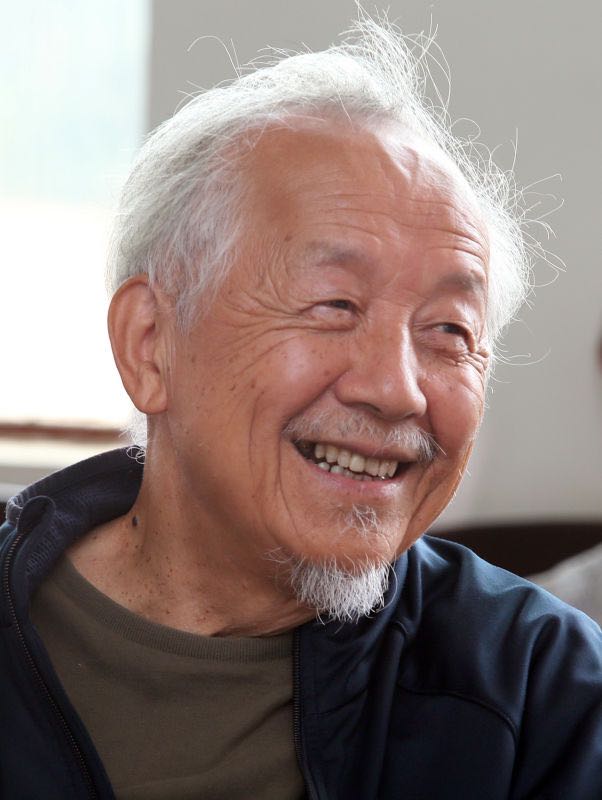 William S-Y. Wang (王士元) received his graduate training at the University of Michigan. He has held appointments at the Research Laboratory of Electronics of M.I.T., IBM Research Center (Yorktown Heights), Ohio State University, and University of California (Berkeley, 1966-1996). Currently he is Chair Professor of Language and Cognitive Sciences at the Hong Kong Polytechnic University.
William S-Y. Wang (王士元) received his graduate training at the University of Michigan. He has held appointments at the Research Laboratory of Electronics of M.I.T., IBM Research Center (Yorktown Heights), Ohio State University, and University of California (Berkeley, 1966-1996). Currently he is Chair Professor of Language and Cognitive Sciences at the Hong Kong Polytechnic University.
He has also held fellowships from the Guggenheim Foundation, Fulbright Commission, and Centers for Advanced Studies at Bellagio (Italy), at Kyoto (Japan), and twice at Stanford. While at Berkeley, he founded the Journal of Chinese Linguistics in 1973, and continues to serve as its editor. He was inaugural President of the International Association of Chinese Linguistics when it was formed in Singapore, and is an Academician of Academia Sinica.
His early publications include a 1969 paper in LANGUAGE on lexical diffusion, a 1973 paper in SCIENTIFIC AMERICAN on the Chinese language, and various co-authored papers in NATURE, PNAS, and in many other journals. Recently, he has published. '語言、演化、與大腦', 商務印書館 (2011), and Love and War in Ancient China: Voices from the Shijing, City University of Hong Kong Press. (2013). His current research focuses on language and cognitive decline.
Professor Ovid J. L. TSENG
Chancellor of the University System of Taiwan
Academician & Distinguished Research Fellow, Institute of Linguistics, Academia Sinica, Taiwan, R.O.C
Title: Reading Brain Across Different Writing Systems: From the Universality of Brain Areas to the Linguistic Specificities of Functional Connectivity.
During functional MRI, skilled adult readers of four distinct and highly contrasting languages, Spanish, English, Hebrew, and Chinese, performed an identical semantic categorization task to spoken and written words. Results from three complementary analytic approaches demonstrate limited language variation, with speech–print convergence emerging as a common brain signature of reading proficiency across the wide spectrum of selected languages, whether their writing system is alphabetic or logographic, whether it is opaque or transparent, and regardless of the phonological and morphological structure it represents (Rueckl, et. al., PNAS, 2015). The establishment of the universal reading brain areas is impressive in view of the chaotic and conflicting findings of the “unique” Chinese reading brain from many different laboratories, as compared to the more or less consistent patterns of brain activity in the processing of alphabetic scripts. However, as the authors of the PNAS paper cogently stated, “the fact that the same brain regions are engaged in reading and understanding spoken words in different languages does not necessarily imply that identical computations are used across the 4 languages.” Therefore, it is important to examine the specific functional connectivity within the brain along the time course of word recognition in each of the different scripts. From the examination of the results of the comparative studies of specific cerebral functional connectivity in reading across the 4 different writing systems, I will highlight the emerging linguistic specificities of reading brain circuitries, each developed according to the various cognitive demands, from the perspectives of the orthographic depth in the alphabetic scripts (Spanish, English, and Hebrew), and of the logographic vs. alphabetic contrast. In addition, I will make comments on skilled readers’ meta-linguistic ability with respect to the five basic learning principles (namely, imitation, borrowing, efficient storage/retrieval processing, transformation, and connection) of cognitive developments, in both phylogenetic and ontogenetic senses.
About the speaker
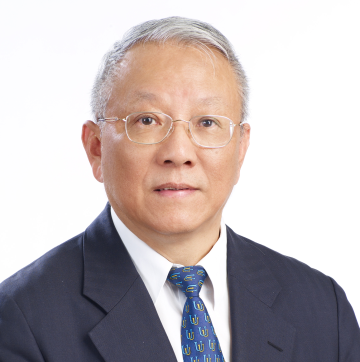 Professor Ovid Tzeng is the chancellor of University System of Taiwan and academician of Academia Sinica. He was the Minister of Education, the Minister Without Portfolio, and the Minister of Council for Cultural Affairs. He is an outstanding researcher in Cognitive Neuroscience and Neurolinguistics and an experienced leader in academic institutions. He serves as a member of the Board of Directors of Haskins Laboratories in the U.S. and an advisory board member of the ARC Centre of Excellence in Cognition and its Disorders in Australia. He has also been elected to be the academician of The World Academy of Sciences (TWAS) since 2010 and active member of The European Academy of Sciences and Arts since 2017. He has been the Chancellor of University System of Taiwan for several years, which was created by him and established to oversee and integrate the research and teaching developments of Taiwan’s four top research universities, namely, Central-, Chiao-Tung-, Tsing Hua- and Yang Ming University. Prior to the Chancellorship, he was the Vice President of Academia Sinica in Taiwan, in charge of International Scholarly Exchange Program as well the developments of Taiwan’s International Graduate Program (TIGP). He is currently an Executive member of the Committee on Human Rights of the NAS, NAE, and NAM, as well as a member of the UNESCO’s Inclusive Literacy Learning for All Project.
Professor Ovid Tzeng is the chancellor of University System of Taiwan and academician of Academia Sinica. He was the Minister of Education, the Minister Without Portfolio, and the Minister of Council for Cultural Affairs. He is an outstanding researcher in Cognitive Neuroscience and Neurolinguistics and an experienced leader in academic institutions. He serves as a member of the Board of Directors of Haskins Laboratories in the U.S. and an advisory board member of the ARC Centre of Excellence in Cognition and its Disorders in Australia. He has also been elected to be the academician of The World Academy of Sciences (TWAS) since 2010 and active member of The European Academy of Sciences and Arts since 2017. He has been the Chancellor of University System of Taiwan for several years, which was created by him and established to oversee and integrate the research and teaching developments of Taiwan’s four top research universities, namely, Central-, Chiao-Tung-, Tsing Hua- and Yang Ming University. Prior to the Chancellorship, he was the Vice President of Academia Sinica in Taiwan, in charge of International Scholarly Exchange Program as well the developments of Taiwan’s International Graduate Program (TIGP). He is currently an Executive member of the Committee on Human Rights of the NAS, NAE, and NAM, as well as a member of the UNESCO’s Inclusive Literacy Learning for All Project.